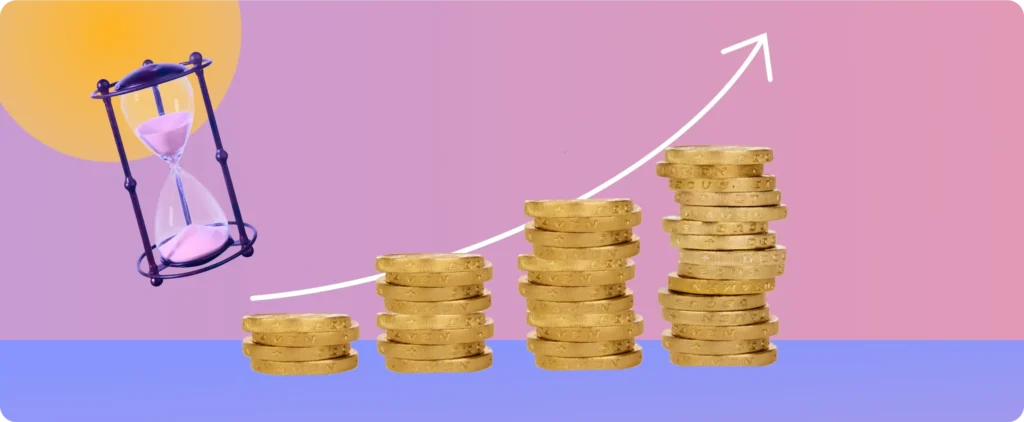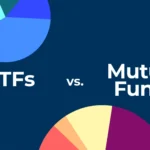🔍 Introduction: What Is Compound Interest?
Imagine planting a tree that grows a bit every year—but the magic happens when the new growth also starts growing. That’s compound interest in a nutshell: earning interest on your interest, not just your original investment.
Albert Einstein reportedly called compound interest the “eighth wonder of the world.” Whether or not he actually said that, there’s no denying its power. If used wisely, compound interest can turn even modest savings into a million-dollar nest egg over time.
In this article, we’ll break down:
- What compound interest is
- How it works (with real numbers)
- Simple strategies to make it work for you
- FAQs and tips to stay on track
📈 How Compound Interest Works
At its core, compound interest is:
Interest calculated on the initial principal AND also on the accumulated interest of previous periods.
The formula looks like this: A=P(1+rn)ntA = P (1 + \frac{r}{n})^{nt}A=P(1+nr)nt
Where:
- A = Final amount
- P = Initial principal
- r = Annual interest rate
- n = Number of times interest is compounded per year
- t = Number of years
Let’s say you invest $10,000 at an average annual return of 8%, compounded yearly:
- After 10 years: $21,589
- After 20 years: $46,610
- After 30 years: $100,626
- After 40 years: $217,245
Just by staying invested and not touching the money, your investment more than doubles every 9 years!
💰 How to Become a Millionaire with Compound Interest
You don’t need to win the lottery or build the next Apple. If you consistently save and invest smartly, compound interest can do the heavy lifting.
Scenario 1: Start Early
| Age Started | Monthly Contribution | Millionaire By |
|---|---|---|
| 20 | $200 @ 10% return | Age 60 |
| 30 | $400 @ 10% return | Age 60 |
| 40 | $800 @ 10% return | Age 60 |
Source: Investor.gov Compound Interest Calculator
Starting early requires less effort because time multiplies your money. Even modest amounts grow tremendously over decades.
Scenario 2: Max Out Roth IRA or 401(k)
Let’s say you max out your Roth IRA at $6,500 per year from age 25 to 65 and average 8% returns:
- You’d have over $1.7 million by retirement.
If your employer matches 401(k) contributions? That could double the effect.
Related reading: IRS contribution limits
🔧 Tools to Help You Compound Your Way to $1M
- ✅ Investor.gov Compound Interest Calculator
- ✅ Bankrate’s Investment Calculator
- ✅ Robo-advisors like Betterment or Wealthfront
These tools help estimate when you’ll reach your million-dollar milestone.
🚀 Tips to Supercharge Your Compound Interest
1. Start Early
Time is your greatest ally. Even if you only invest a little, the earlier you start, the better. Just $50/month starting at age 20 compounds significantly more than $200/month starting at 40.
2. Reinvest All Returns
Let dividends and interest reinvest. This keeps your money working and compounding.
3. Avoid Unnecessary Withdrawals
Withdrawals interrupt compounding. Keep your investments intact as long as possible.
4. Keep Fees Low
Fees eat into your returns. Opt for low-fee index funds or ETFs. Even a 1% fee difference can cost you hundreds of thousands over decades (Morningstar).
5. Invest Consistently
Use dollar-cost averaging—invest a fixed amount each month, regardless of market conditions.
📚 Real-Life Examples
✅ Example 1: Sarah Starts Early
Sarah invests $300/month starting at age 22 with an 8% return. By age 60, she has over $1 million.
❌ Example 2: Mike Starts Late
Mike waits until age 35 and invests $600/month. Despite investing more per month, he ends up with only ~$760,000 by 60.
The difference? Time.
✅ Example 3: Compound Interest on Dividends
John buys 1,000 shares of a dividend stock at $10 each, with a 5% yield reinvested. Over 25 years, he turns $10,000 into over $33,000—without adding more money.
See how dividend reinvestment works
❓ Frequently Asked Questions (FAQs)
Q1: What’s the difference between simple and compound interest?
- Simple interest is calculated only on the principal.
- Compound interest includes both principal and accumulated interest.
Compound interest earns interest on interest—a snowball effect.
Q2: Can I get rich with compound interest alone?
Yes—but it requires time and discipline. The earlier you start and the more consistently you invest, the greater your returns.
Q3: What accounts allow for compound interest?
- 401(k), IRA, Roth IRA
- Brokerage accounts
- High-yield savings accounts
- Dividend stocks & ETFs
Q4: What annual return should I aim for?
A diversified portfolio typically returns 7–10% annually over time.
Don’t chase quick wins—focus on long-term growth.
Q5: How often should interest compound?
The more often it compounds (monthly > annually), the more you earn. Most mutual funds and ETFs compound daily or monthly.
🧠 Final Thoughts: Let Time Work for You
Compound interest is boring… until it’s not. It rewards those who are patient, consistent, and intentional. Becoming a millionaire isn’t reserved for the ultra-rich or tech geniuses—it’s achievable for almost anyone willing to start early and stick to the plan.
Want to build wealth?
Stop trading time for money—and let your money work for you instead.
🔗 Useful Resources
🎁 Want a Surprise?
Click here to get redirected to a random post


